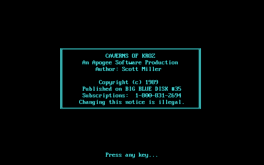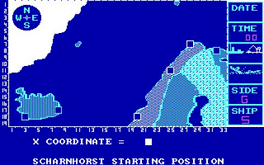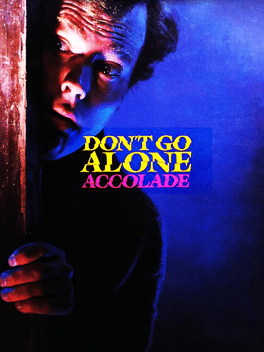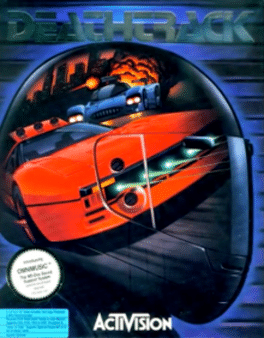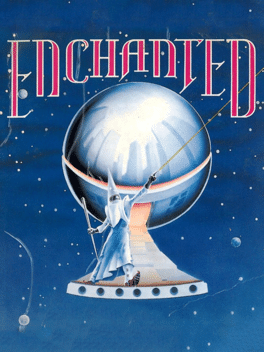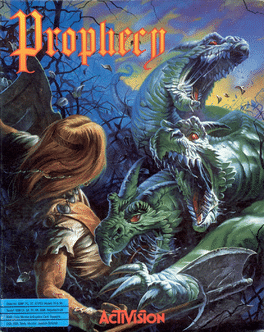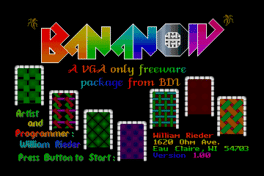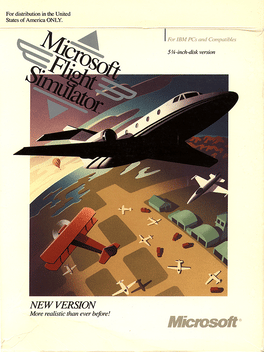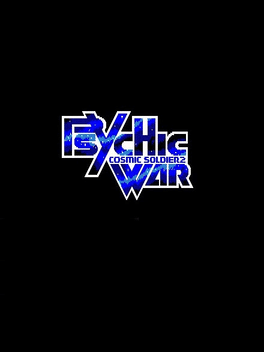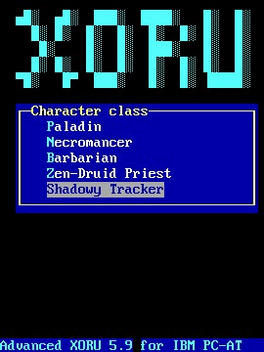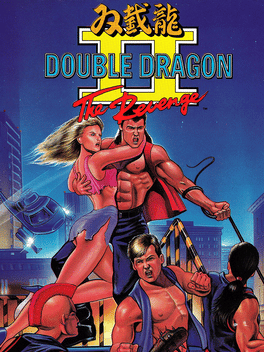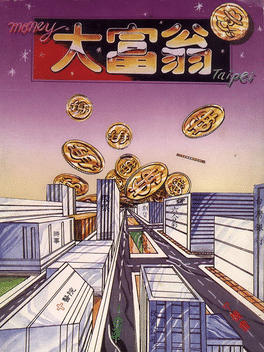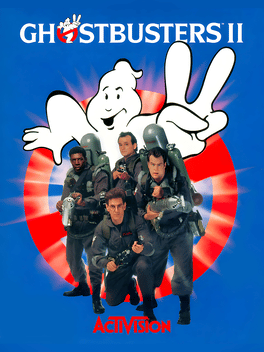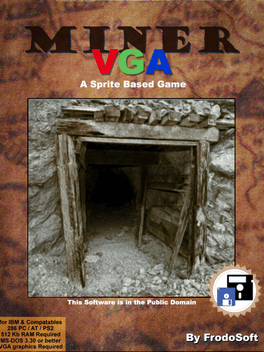New Dos Games - Page 56
-
Caverns of Kroz
1989
Caverns of Kroz
1989
Caverns of Kroz is the 3rd game in the Original Kroz Trilogy made by Apogee founder Scott Miller in 1989. This one offers 40 levels. Gameplay and of course the use of ASCII characters as graphics are identical to Kingdom of Kroz. -
Don't Go Alone
1989
Don't Go Alone
1989
Don't Go Alone is a horror role-playing game. The player can choose their party from a variety of 16 paranormal characters available. With their party they'll investigate a haunted house on a hill. The house is huge and players will encounter over 100 spooky opponents and solve various puzzles in order to find out the mysteries of the haunted house. An automap feature helps prevent the player from loosing track in the huge dungeons of the game. -
DeathTrack
1989
DeathTrack
1989
There are two ways to win a race: be the first, or be the only one. Based in a futuristic America, the player races on various tracks across the country for money, which can be spent on armor, weapons and other modifications to protect and use against the competition. The player chooses from one of three cars (either "The Hellcat" for high speed, "The Crusher" for high firepower or "The Pitbull" for heavy armor). -
Aldo Again
1989
Aldo Again
1989
Aldo Again is a single player clone of Donkey Kong. The objective of the game is to take Aldo to the treasure chest, avoiding falling barrels along the way. When the chest is reached any remaining time is added to the player's score. Time is an important resource and playing time can be extended by picking up prizes en-route. The game is entirely keyboard controlled. -
After Burner II
1989
After Burner II
1989
After Burner II is an arcade-style flight game released by Sega in 1987. It is the second game in the After Burner series. In the game, players fly a F-14 Tomcat jet fighter, gunning down enemies while avoiding incoming fire. Like OutRun, another Sega arcade game, After Burner II came in several versions, the most famous being a large, servo actuated, sit-down cabinet which resembled a cockpit and moved according to the motion of the plane onscreen. The cockpit would bank in the same direction the on-screen aircraft was banking. There was also a more basic upright cabinet version. After Burner II has been translated and ported to numerous home computers, consoles and mobile phones; including versions for the PC Engine, Sharp X68000, Sega Mega Drive, Famicom, FM Towns Marty, Atari ST, Amiga, Amstrad CPC, Commodore 64 and Sega Saturn. In Japan, it was released on the PlayStation 2 as part of the Sega Ages classic series. Mega placed the Mega Drive version at #38 in their Top Mega Drive Games of All Time. MegaTech ma -
Railroad Empire
1989
Railroad Empire
1989
The second game in the A-Train series. This American localization/port was the first time the series ever landed in the U.S, though it wasn't until the third entry that the series gained some success. -
Autobots
1989
Autobots
1989
Clear levels by making robots smash into one another. You do this by manipulating them to crash into one another using your player icon (the robots always move towards your player, so if you can get two robots moving on the same lateral plane towards you then they are an easy kill.) When two robots crash into one another they form a pile of debris which can also be used to destroy robots. -
Enchanted
1989
Enchanted
1989
Enchanted is a Pinball game in which a magician must travel through his space-time ship to different worlds to prevent them from being destroyed by an evil entity that threatened the entire galaxy. With this argument, the player must visit these worlds through different boards, obtaining, of course, the highest score -
Bananoid
1989
-
Microsoft Flight Simulator 4.0
1989
Like the previous release, version 4 included scenery for five cities (New York, Seattle, San Francisco, Los Angeles, and Chicago). It featured CGA through VGA (in EGA resolution) support, and multi-user play. Version 4 also supported newer add-ons such as Microsoft's Aircraft & Scenery Designer, and Sublogic's USA scenery series. -
Cosmic Soldier: Psychic War
1989
The 1987 sequel, Cosmic Soldier: Psychic War, was originally released for the MSX2 computer in Japan. In America, the game was released by Kyodai, and they changed the name to Psychic War and released the game for MS-DOS computers. The MS-DOS version censors Kayla's clothing. It changed the turn-based combat of its predecessor to a unique "tug of war" style real-time combat system, where battles are a clash of energy between the party and the enemy, with the player needing to push the energy towards the enemy to strike them, while being able to use a shield to block or a suction ability to absorb the opponent's power. The game also improves upon the conversation system of its predecessor and more closely resembles the one in Digital Devil Story: Megami Tensei released around the same time. -
Advanced Xoru
1989
-
Tetris
1989
-
Dà Fùwēng
1989
-
Ghostbusters II
1989
Ghostbusters II
1989
star 3.5The release of "Ghostbusters II" for DOS, based on the movie of the same name. -
MinerVGA
1989
